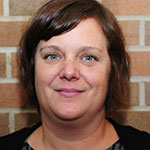When I joined the Poverty Roundtable Hastings Prince Edward as their Director in 2016, building a community action plan for poverty reduction was just one of the activities I would be taking on as part of a complex project plan. The overall goal of the work was divided into two parts; First, to ensure that people who use programs shape the programs and services that matter to them, and second, to bring our community together to work to reduce poverty–In effect, removing the silos that we have had a tendency to work in.
Initially the project plan anticipated shaping existing programs and services of community based organizations that would improve our collective work as social and health agencies. One of the hinges in this assumption became unhinged as I met with hundreds of people who were living in poverty across Hastings and Prince Edward where services were, to various extents, i naccessible, and, without a vehicle, getting to a service or program was unlikely. Incomes were falling short of covering the rent and food alone so funding the cost of a vehicle was not possible for many.
naccessible, and, without a vehicle, getting to a service or program was unlikely. Incomes were falling short of covering the rent and food alone so funding the cost of a vehicle was not possible for many.
It was clear that the services people depend on most included provincial programming, such as social assistance and health care – not exactly accessible areas that are shapeable for people experiencing poverty in Hastings Prince Edward. In most community conversations, whether large, small, or one-on-one, it was evident that people depend on each other most to get by, that they are each other’s supports, and in addition to each other, what mattered was stable housing, and manageable costs, i.e. incomes that meet cost of living costs and access to health care. Relationships, incomes and health matter.
We are currently carrying out the work to ensure citizens are shaping programs and services they access, and are building bridges to increase collaboration. By bringing our communities together in working groups on housing, employment and food security, as well as through the creation of a lived experience advisory council, and through the delivery of education forums, workshops, and the creation of community tools.
We are now starting the work with governments. Maytree’s policy school came up at the point that the Roundtable was pulling together community recommendations to create a community plan for action. The priority areas are clear and the recommendations call for significant changes that include all levels of government.
How do we build stronger relationships with the public sector who are the ones that can create the change that our communities are calling for? How do we ensure people who are using programs and services can shape them throughout all levels of government? How do we manage when we are a tight staff of two and depend on our community members and partners to do the bulk of the work for community led change? What can we do well and what should we stop doing? Where can we get strategic and organize for specific changes?
I started Maytree’s Policy School in January and it has been an incredible learning experience and connecting experience. Beyond the opportunity to reflect, learn and to begin to answer the strategic questions, it was also about connecting with other leaders with long histories of policy advocacy work, as well as those just embarking or re-embarking in this work to learn from each other, and together, for six months.
Being invited in to think like a policy maker is helpful and learning from policy makers, who facilitated workshops and were part of panels, on how change happens has opened up a different landscape to consider in our change work, as well as allowing me to fuel my crush (a long standing crush on change makers) and to hear directly from federal, provincial, municipal civil servants, elected officials, researchers and advocates about how they made change happen. Stories highlighted include the development of community benefit agreements with the LRT, making access to post-secondary education affordable in Ontario for lower income students and the creation of the National Housing Strategy to name just three change stories.
Key learnings from my Maytree Foundation Policy School experience include:
- It’s important to understand the ways in which change happens – stories of change from inside government aids understanding
- Thinking like a policy maker – think out the intended and unintended consequences of a policy change and be prepared to speak to that
- Some policy changes are easier than others. Consider timing, costs or cost savings, opposition, the outcomes, precedence set elsewhere and the evidence base
- Build relationships – knowing each other are the building blocks of change, cultivate weak links and build movements
- Get clear on what you are asking for, provide insights from experience and ensure the base of data and evidence to support the change is substantive
Being invited behind the scenes to think like a policy maker was both affirming and transformative – consider the policy maker who must think out every turn before the turn is made and then everyone else around you must be convinced to take the same turn. Governments don’t like risk nor a let’s just see if it works approach. There is also no going it alone.
What Maytree’s Policy school has laid bare is that policy makers would like to know us and for us to know them– it helps them work better for us when they know what we know. What we know is what is happening on the ground, the impacts of programs and policies and they need us to provide the evidence for them to make decisions. In common we share a basic premise for all of our work and that is to make things better.
The opportunity to shape the programs and services that matter, and to come out of silos – including government working in silos- is an opportunity to create long term sustained change in Hastings Prince Edward.
A few helpful resources:





